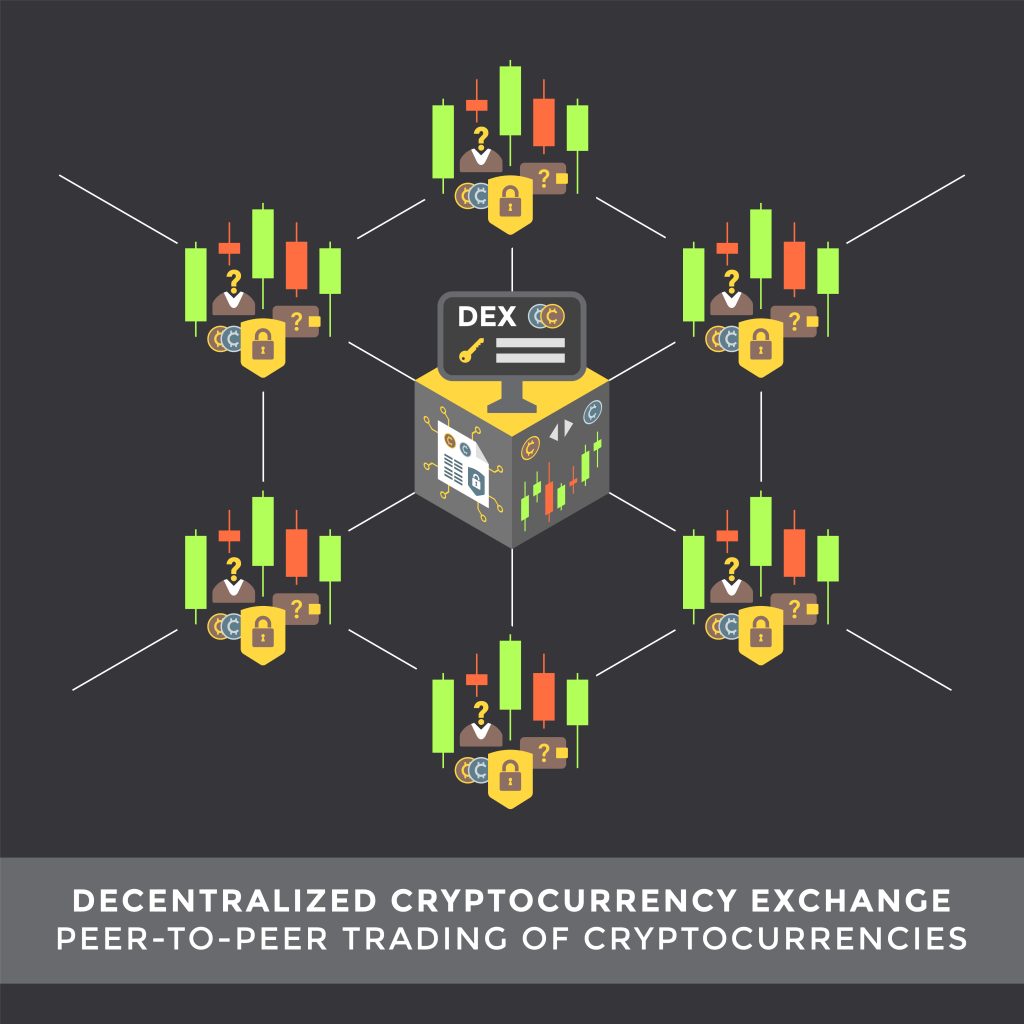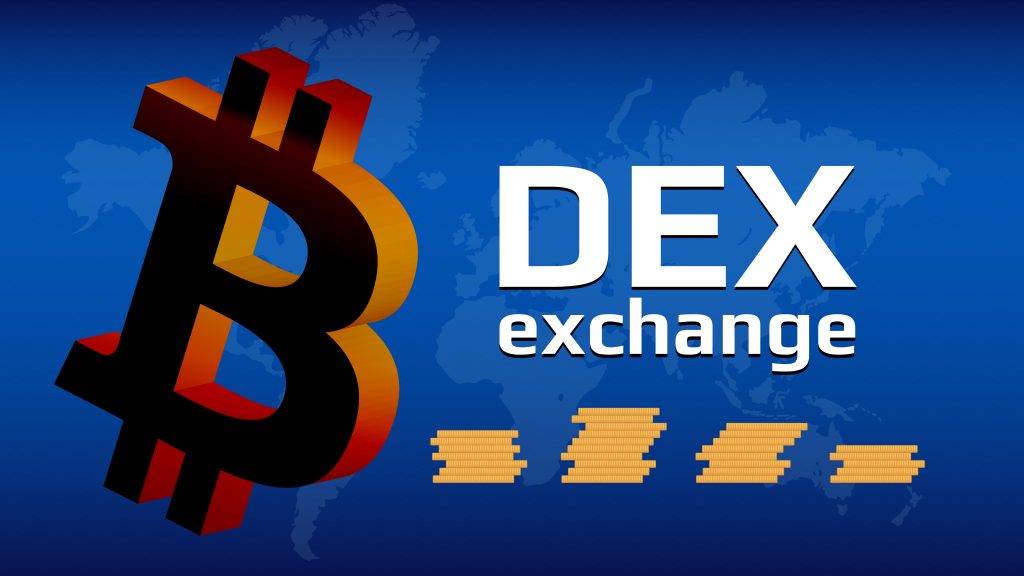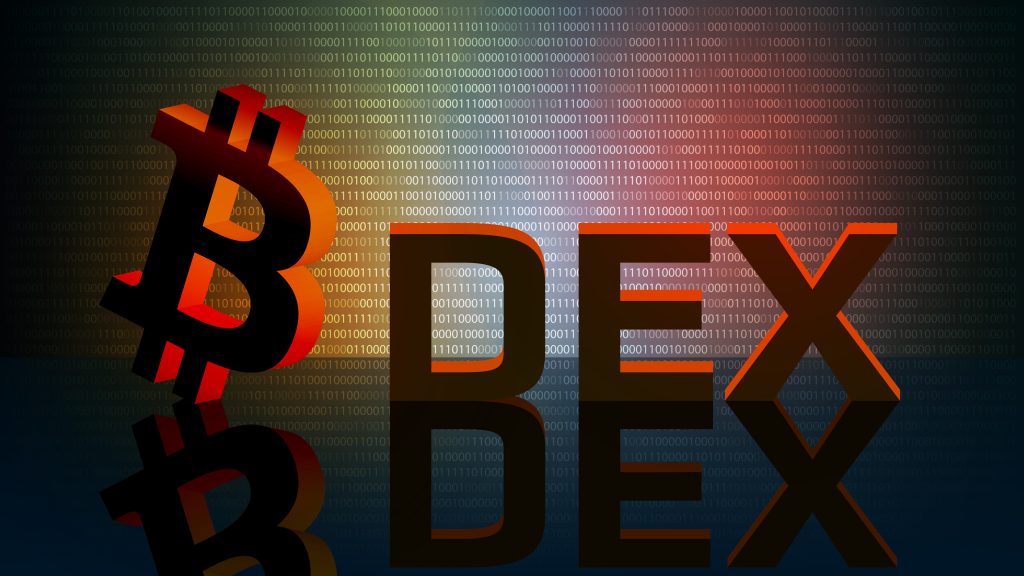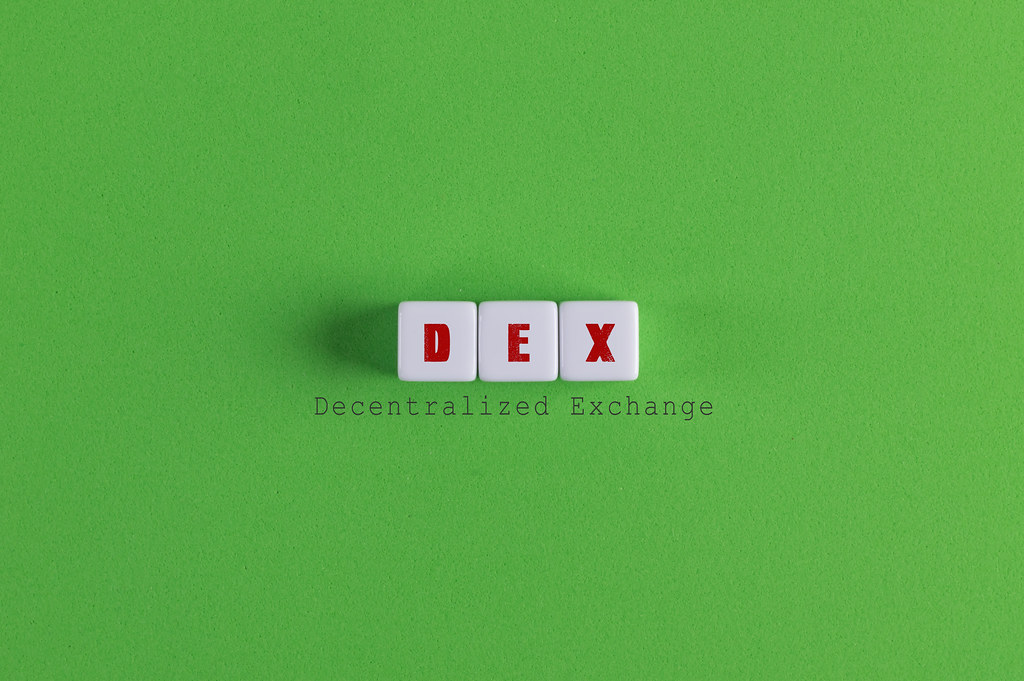Welcome to the world of decentralized exchanges (DEXs), a fantastic solution for gamers and play-to-earn enthusiasts looking to dive into the crypto realm. The growing importance of DEXs in the cryptocurrency and blockchain landscape is hard to ignore. With a focus on providing a secure, trustless, and permissionless trading environment, these exchanges are changing the game for crypto enthusiasts everywhere. So, if you’re itching to get started in this exciting space, grab your controller, and let’s level up your understanding of DEXs!
Understanding Decentralized Exchanges (DEX)
First, let’s clear the fog of war and define what a decentralized exchange is. A DEX is a non-custodial, peer-to-peer trading platform that operates without a central authority or intermediary. It’s like the open-world environment of crypto trading, where users maintain control over their funds and engage in transactions directly with other users.
In a DEX, smart contracts play a significant role in facilitating trades. These digital contracts execute automatically when specific conditions are met, ensuring transparency and trust between traders. In a nutshell, a DEX empowers you to trade your tokens and NFTs like a boss while keeping your digital assets under your control.
The Mechanism Behind a DEX


Blockchain Technology and Smart Contracts
In the realm of DEXs, blockchain technology serves as the ultimate power-up, providing a decentralized and secure environment for trading. Think of it as the digital universe where all your crypto trades come to life. In this world, every transaction is recorded on a distributed ledger – like an indelible ink that can’t be erased or manipulated.
Smart contracts are the spellcasters of the blockchain realm. These automated digital contracts ensure the smooth and transparent execution of trades on DEXs. Acting like a wise and impartial wizard, they step in to cast their spells when specific conditions are met, making sure that every transaction happens without a hitch.
Liquidity and Trading on a DEX
In the vast ocean of trading, liquidity is the lifeblood that keeps the ecosystem alive. It allows assets to be easily bought and sold, ensuring smooth sailing for traders. However, DEXs face a unique boss battle when it comes to providing sufficient liquidity. To overcome this challenge, they summon the power of liquidity pools.
Liquidity pools are like treasure troves where users can deposit their tokens to help facilitate trades on the platform. As a reward for their noble contribution, these users receive a share of the trading fees and, sometimes, even additional tokens. It’s like a never-ending quest where everyone reaps the benefits of their teamwork.
Transaction Processing and Settlement
The process of transaction validation and settlement on a DEX may seem like an intricate dance, but it’s a well-choreographed routine that ensures the integrity of the system. In a DEX, decentralized nodes scattered throughout the network work in harmony like a guild of heroes, each performing their part to keep the network secure and efficient.
When a user initiates a transaction on a DEX, these nodes spring into action, working together to verify the transaction’s authenticity. Once validated, the transaction is added to the blockchain, and the assets are transferred between the trading parties. This decentralized process ensures that no single entity holds too much power and that the network remains resilient and robust.
Comparing Centralized and Decentralized Exchanges
The battle between centralized and decentralized exchanges is like an epic showdown between two contrasting forces. Centralized exchanges (CEXs) act as the gatekeepers, with a single authority controlling the platform and holding users’ funds. They’re user-friendly and offer higher trading volumes, but they can also be vulnerable to hacks and security breaches.
On the other side, decentralized exchanges (DEXs) represent a trustless, permissionless trading environment. With no central authority holding the reins, users maintain control over their assets, and trades are facilitated through smart contracts. However, they may have lower liquidity and slower transaction speeds compared to CEXs.
Pros and Cons of Decentralized Exchanges
Advantages of DEX
DEXs offer a treasure trove of benefits for their users, making them an attractive option for many crypto enthusiasts:
- Enhanced security: Like a sturdy fortress, DEXs minimize the risk of hacks and breaches, as users maintain control over their private keys and funds.
- Reduced counterparty risk: With no central authority holding users’ assets, the risk of losing funds due to mismanagement or bankruptcy is virtually eliminated.
- Privacy: Privacy is a prized possession in the world of crypto, and DEXs offer a higher degree of anonymity compared to centralized exchanges.
- Censorship resistance: DEXs empower users to trade freely without the risk of interference from any central authority or third party.
Disadvantages of DEX
Like any epic adventure, DEXs also have their share of challenges and drawbacks:
- Lower trading volumes: Compared to their centralized counterparts, DEXs tend to have lower trading volumes, which could impact the ease of trading and liquidity.
- Slower transaction speeds: Due to the decentralized nature of their operations, DEXs might have slower transaction processing times than centralized exchanges.
- Steeper learning curve: Venturing into the world of DEXs might be daunting for new users, as they often require a greater understanding of blockchain technology and trading concepts.
Exploring Different Types of DEXs


Not all DEXs are created equal – there are various types, each with its unique approach to facilitating trades and providing liquidity. Let’s dive into the most common types: Automated Market Makers (AMMs), Order Book DEXs, and DEX Aggregators.
Automated Market Makers (AMMs)
AMMs have revolutionized the DEX landscape by offering a unique approach to providing liquidity. These platforms use algorithms and smart contracts to determine the price of assets and facilitate trades without relying on an order book. Users can deposit their tokens into liquidity pools, which are then used to enable trading on the platform. Popular Automated Market Makers like Uniswap and SushiSwap have become go-to destinations for decentralized trading.
Order Book DEXs
Order Book DEXs, on the other hand, function more like traditional exchanges. They use an order book system to match buyers and sellers based on their desired prices. While they offer a familiar experience for traders, they might face challenges in providing sufficient liquidity, especially for less popular trading pairs. Nevertheless, they remain an essential part of the DEX ecosystem.
DEX Aggregators
DEX Aggregators are like the superheroes of the decentralized trading world. These platforms source liquidity from multiple DEXs to offer users the best possible prices and optimize their trades. By scanning a variety of DEXs for the most favorable rates, aggregators save users time and effort in finding the right platform for their trades. Examples of DEX Aggregators include 1inch and Matcha.
Notable DEX Protocols and Platforms


Here’s a quick look at some popular DEX platforms, each offering unique features and catering to the needs of diverse crypto enthusiasts:
Uniswap
Uniswap is one of the most popular AMM-based DEXs built on the Ethereum blockchain. It enables users to swap between ERC-20 tokens seamlessly and provides a user-friendly interface for liquidity providers. Uniswap’s native token, UNI, is used for governance and can be earned by participating in liquidity provision.
SushiSwap
SushiSwap is another Ethereum-based DEX that initially started as a fork of Uniswap. It has since evolved into a powerful DeFi ecosystem offering various services like yield farming, lending, and staking. Its native token, SUSHI, can be earned by participating in the platform’s activities and is also used for governance.
PancakeSwap
PancakeSwap is a leading DEX built on the Binance Smart Chain (BSC), offering fast and affordable trading of BEP-20 tokens. It boasts an extensive list of features like yield farming, staking, and lotteries, attracting users seeking lower fees and faster transactions. CAKE, the platform’s native token, is used for governance and can be earned through participation.
Security and Risks Associated with DEXs


While DEXs offer numerous advantages, users should be aware of potential security risks and challenges:
- Smart contract vulnerabilities: DEXs rely on smart contracts, which can be prone to bugs and exploits. Make sure to use well-audited platforms and follow updates to minimize risks.
- Phishing attacks: Scammers might create fake websites or applications mimicking popular DEXs. Always verify the URL and double-check before entering sensitive information.
- Front-running: Malicious actors can monitor pending transactions and attempt to jump ahead in the queue to benefit from price discrepancies. Some DEXs implement measures to prevent front-running, but it’s crucial to stay informed and vigilant.
To mitigate these risks, always do your research, use reputable platforms, and consider using hardware wallets for added security.
Envisioning the Future of Decentralized Exchanges
As the DeFi space continues to evolve, DEXs will likely play a more significant role in shaping the future of finance. Here’s what to expect:
- Regulatory changes: As DEXs gain popularity, regulatory bodies may attempt to introduce new rules and guidelines to ensure compliance and protect users.
- Technological advancements: Innovations in blockchain technology will lead to faster, more secure, and more scalable DEXs, offering better user experiences.
- Growing DeFi adoption: With increasing interest in DeFi, more users will flock to DEXs to access a wide range of financial services without relying on traditional intermediaries.
The future of DEXs is bright, and as mobile gamers and play-to-earn enthusiasts, you’ll undoubtedly witness their transformative impact on the world of finance.









